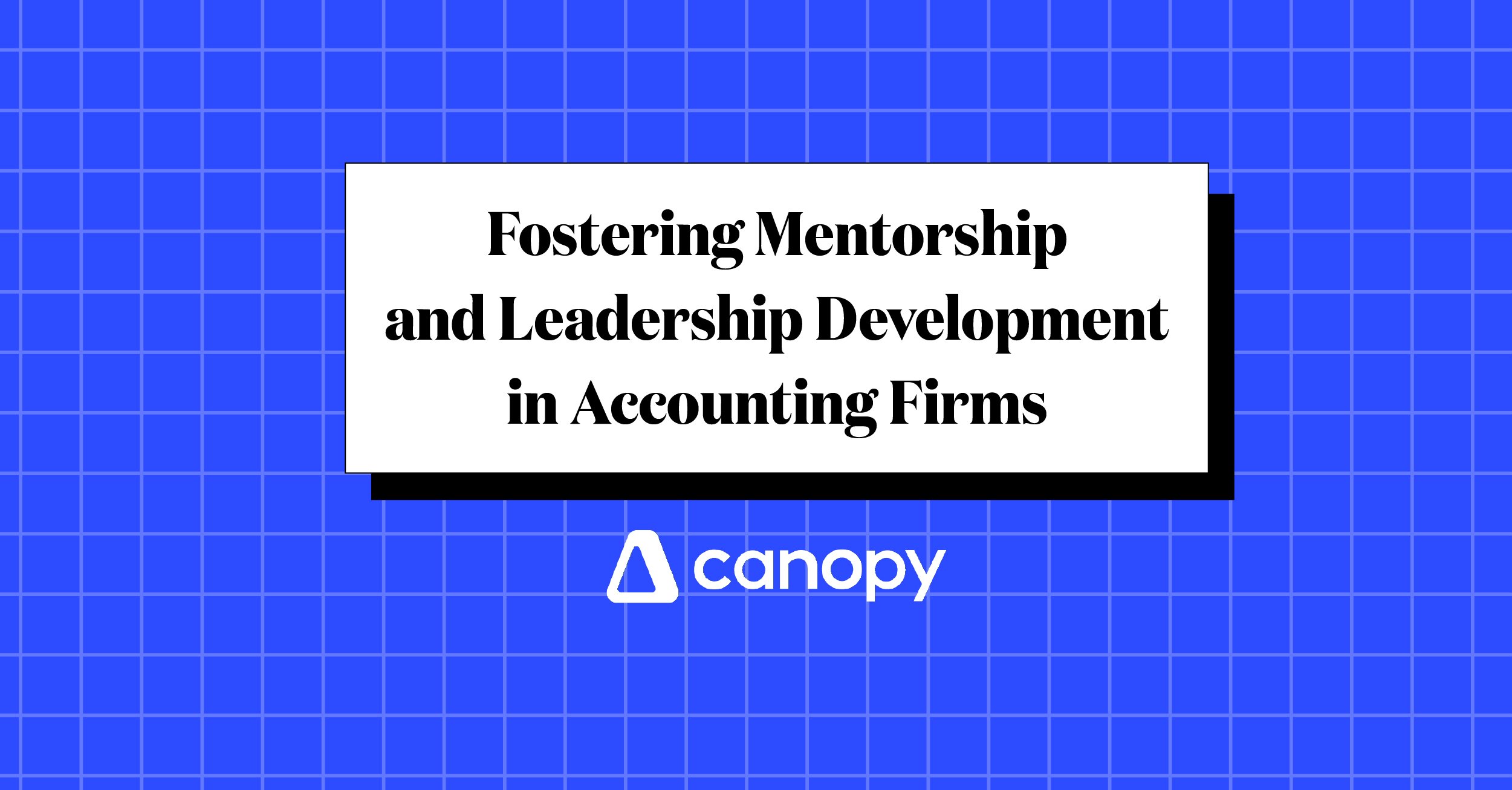Last year, roughly 50.5 million Americans quit their jobs to take new positions and 73% of employers are having difficulty attracting staff. Clearly, the accounting industry has been affected by this rapid resignation of employees–despite having the third lowest turnover rate in the nation. Many accounting firms have struggled to attract and retain top talent and are revamping benefit offerings and increasing salaries to fill open positions.
While offering attractive benefit packages and competitive salaries are key drivers in retaining accounts, mentorship and leadership development opportunities can also improve employees retention. In fact, both Millennials and Gen Z cite mentorship and leadership development as one of the top three reasons they chose to work for their current employer, according to a 2022 Deloitte study.
The Benefits of Offering Mentorship and Leadership Development
In addition to increasing employee retention, an increased focused on leadership development and mentorship opportunities increases individuals’ confidence, critical thinking, empathy, and other vital skills needed for a successful firm. Other benefits include:
- Fostering professional growth: According to the Association for Talent Development, 75% of executives stated the importance of mentorship in their professional development. For mentees, working closely with higher ups provides an opportunity for constructive feedback, career development, and networking opportunities. For mentors, it offers the chance to share knowledge, create more effective firm processes, and learn new perspectives.
- Enhancing job satisfaction: For mentees, a mentorship provides a strong introduction to the firm and highlights how to approach office culture, partner introductions, and daily tasks. Leadership development continues these opportunities for professional growth after the mentorship program has ended. The knowledge gained from both programs increases individuals’ overall confidence, job readiness, and overall satisfaction.
- Strengthening succession planning: Succession planning refers to the process of identifying individuals to assume various job roles within a firm. Mentorship and leadership development can help identify the right people for those roles by developing career paths, exposing individuals to talented employees or partners, and fostering skills necessary for firm or leadership roles.
A Look into KPMG’s Mentorship Program
KPMG, a professional services company, offers clients actuarial, auditing, tax, and other financial services. As new employees join the firm, they’re faced with numerous actuarial and CPA exams. To support employees through the process, the company offers a CPA Training and Mentorship Program. The program connects individuals with a CPA program manager and peer support company, giving them crucial support on their path to completing the exam and confidently starting their accounting career.
3 Ways to Implement Mentorship Opportunities
Firms looking to implement successful mentorship programs should consider the following best practices:
- Set clear goals: Clear objectives between both the mentor and mentee add more value to the relationship. Mentees know what to work towards and mentors can offer encouragement along the way. Well-defined goals also help keep the relationship moving forward and may help in meeting larger firm goals.
- Provide necessary training: For a mentorship program to be successful, mentors need to have the right knowledge and tools at their disposal. Providing training before meeting with mentees allows mentors to ask questions, resolve issues, and better understand their role.
- Promote a culture of openness and support: Encourage both mentors and mentees to regularly share feedback in both mentorship and leadership development initiatives. It’s also important for firm leadership teams to act on feedback as this shows both parties they care about their input and are committed to making improvements.
Set Accountants Up for Future Success with Ongoing Skills Development
Regardless of the career path mentors or mentees want to pursue, mentorship programs and leadership development courses are highly beneficial for firms. They give new and emerging staff members the chance to learn from and be motivated by accounting leaders. At the same time, seasoned workers get to hone their leadership skills and further their professional development.
Exposure to positive leadership traits can also foster leadership skills and inspire mentees to offer the same mentorship in the future. Ultimately, mentorship strengthens leadership skills and solidifies the future success of the firm.

Chris is a content manager for Canopy, joining the team with a combined eight years of experience as a copywriter, editor-in-chief, and content marketer. He's a skilled wordsmith and strategic thinker who shapes brand identity through compelling content and fosters a collaborative and innovative environment. With a passion for storytelling and a dedication to excellence, he is a driving force behind any company's success in content marketing. Champion of the Oxford comma.
READ MORE BY Chris






Get Our Latest Updates and News by Subscribing.
Join our email list for offers, and industry leading articles and content.